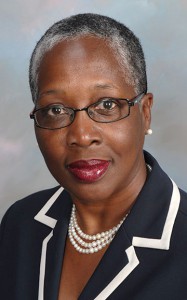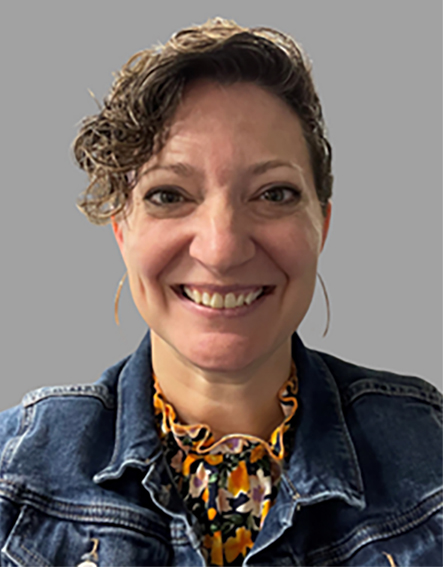
Veda McClain
By Veda McClain
veda.mcclain@education.ky.gov
I do not remember how or when I learned to read. I did not come from a home that housed a library and I did not personally own any books. Yet I entered 1st grade as a reader, without having attended a formal kindergarten.
I could easily read all of the “Dick and Jane” readers, and was often called upon to read for visitors who frequented our segregated school in Pine Bluff, Ark. Our school did not have a library when I entered, and our teachers did not have adequate children’s literature collections in their classrooms. It was not until 3rd grade that reading came alive for me through an exposure to children’s literature.
My year in 3rd grade was the year that our school acquired a library, and thus I began my wonderful journey into the world of books, reading and learning. I began this journey by reading chapter books that would hold my interest for hours after school – a diversionary tactic to keep from washing dishes – and graduated to reading biographies of famous people like George Washington Carver, John F. Kennedy, Eleanor Roosevelt and Booker T. Washington.
Little did I know at the time that I was preparing myself for further learning and enhancing my chances for future academic success. I just enjoyed reading, and I hungered for opportunities to delve into a book.
As a child, I never thought about receiving books as gifts during gift-giving seasons. I always looked for the doll, the clothes or traditional board games to play with my brother. Books were never on my wish list, partly because they were never a part of the commercialism that surrounded the season. Book commercials are still rare.
The other plausible reason was that up until 3rd grade, I had never viewed books as a treasure from which I could gain pleasure. They had always been those sterile tools that were used in the classroom for learning, but never for genuine enjoyment.
During my teen years, I was challenged to read hundreds of pages in the classics by my English and history teachers as they prepared me for college work. Our reading assignments and the subsequent discussions of the texts laid the foundation for my academic literacy and provided the background knowledge and critical thinking skills that proved valuable to me for years to come. I still use much of that information as I run the categories while watching “Jeopardy.”
As an adult, I have come to realize the pure pleasure that can be found on the pages of a book and how delighted I am every time I receive a book as a gift. Over the years, I have learned that books provide readers with visual images, both real and imaginary, about other times and places. Books allow us to explore other worlds, to meet interesting people, and to examine and vicariously experience their cultures, climates and ways of life.
Characters come alive on the pages of good books as readers identify with them and share in their joys, pleasures, sorrows and pains. Books pique the imagination and whet the appetite for future readings. And books help readers grow as they learn more about themselves and experience the world through the eyes of others.
As a classroom teacher, my first gifts to my students were books. I wanted my students to understand the value of embracing the written word for pleasure. I wanted them to yearn for reading, and thereby practice reading day after day. Through their practice, I believed they would develop a proficiency that would lead to additional pleasures and the desire to read even more.
I wanted my students to become voracious readers who would spend hours with books out of sheer pleasure. I wanted them to understand the background knowledge for learning that is built through reading widely and to desire to continually build that knowledge base. Each student in my classroom was encouraged to develop a reader’s appetite that would take them far as lifelong learners as they consumed the contents of interesting books.
When I became a parent, I realized even more the value of book giving. I wanted my children to own their own libraries of books that were of interest to them – treasure chests of worlds far away, yet within their reach. I soon realized that books were cheaper than toys, they had no separate parts to collect after use, they did not break easily, they were complete and did not require assembly or batteries, and they were quiet gifts – unless being shared openly with others.
I began to understand that books were gifts that could be used repeatedly and no matter what the age, gender or interests, a book could always be an appropriate gift. Books also have provided conversation topics for open discussions with my children, deepening their understanding of a range of societal issues and of life in general.
Through book giving, I have been able to share and to pass on to my offspring the tremendous value that I hold for reading and for books. My children have come to understand the wealth of knowledge and experiences that can be enjoyed by reading. And I have come to realize the long-term investment that is made in the lives of readers who receive and enjoy books.
Through the gift of books, I have begun to nurture reading and book enjoyment in the lives of my grandchildren. As their libraries begin to grow, they have begun to hear classic tales as well as modern day stories of adventure, wonder and growth. They listen and smile while hearing stories, but most importantly, they are learning to hear how stories sound as they snuggle next to their grandmother.
During any season, books are appropriate gifts for people of all ages. Books can be read almost anywhere and at any time. They can be read and re-read, like seeing a good movie again and again. Readers always can find something new on the pages of an old friend.
Books can be shared with friends and family. Most of us enjoy hearing a good story or learning new information. Books provide us with those opportunities. Giving books shares a precious treasure that can bring endless pleasure.



Leave A Comment